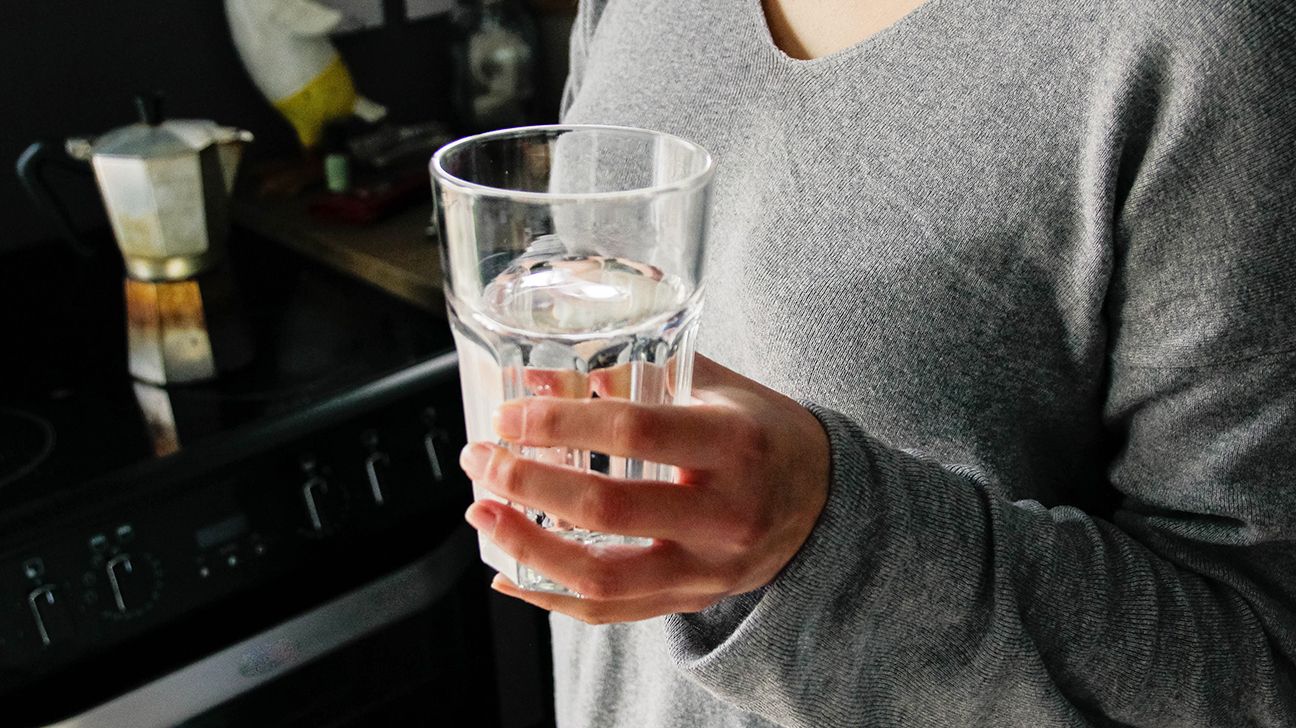Dehydration can make fibromyalgia symptoms worse. Here’s how to minimize pain and fatigue with proper hydration.

If you live with fibromyalgia, a chronic condition that causes musculoskeletal pain and fatigue, you may have wondered if drinking plenty of water could reduce your symptoms.
Although there’s not a lot of research on the connection between dehydration and fibromyalgia specifically, keeping up with your fluid intake could help some aspects of this condition. For some people, fibromyalgia could actually cause low fluid intake, creating an ongoing pain loop.
Read on to discover more information about fibromyalgia.
Dizziness or lightheadedness is one of the
Dehydration can also have an effect on physical pain. According to
Similarly, in a small
Fatigue is another hallmark of fibromyalgia that can be worsened by lack of hydration. In fact, fatigue is a classic symptom of dehydration, so getting too low on fluids could make people with fibromyalgia feel extra lethargic.
Some
If you have fibromyalgia, it’s a good idea to follow general recommendations for good health. The Academy of Nutrition and Dietetics recommends between 11.5 cups and 15.5 cups of water per day. Water intake can come from beverages or foods, such as fruits or vegetables.
Keep in mind that it’s important to spread your fluid intake throughout the day. It can be unsafe to consume large amounts of liquid in a short amount of time.
Consider aiming for an hourly water goal. You can divide your daily intake by the number of hours you’re awake, and then aim to consume that percentage per hour. For example, if you’re typically awake for 12 hours, you can aim to consume between 1 and 1.25 cups of water per hour.
Dehydration symptoms may look a little different in people with fibromyalgia than in the general population.
Whereas people without this condition may feel a little tired or achy without enough water, people who have fibromyalgia could experience amplified symptoms such as major muscle pain, extreme fatigue, or an inability to focus.
If you’ve noticed an uptick in fibromyalgia symptoms, make sure you’re drinking and eating enough liquid every day. A good way to do a self-check is to look at your urine color. Generally, the lighter your urine is, the better hydrated you are.
The connection between dehydration and fibromyalgia goes both ways. Not only does a lack of fluid potentially make symptoms worse, but having this condition may also increase your risk of becoming dehydrated.
Fibromyalgia may reduce your appetite due to gastrointestinal symptoms. Chronic pain and fatigue can also make cooking and eating a healthy diet extra difficult. These difficulties could keep you from staying well-nourished in general, making you more likely to become dehydrated.
When you live with fibromyalgia, you may also be taking prescribed medications to control pain, gastrointestinal distress, swelling, or other symptoms. Dehydration is a possible side effect of some medications.
People who have fibromyalgia may need to take extra steps to stay sufficiently hydrated and keep symptoms from flaring. Try these tips for keeping up with your fluids:
- Invest in a water bottle that reflects your personal style. Some people feel like they drink more if they have a water bottle they like.
- Drink a glass of water with every meal.
- Add fluid-rich foods to your diet, such as soups, stews, fruits, and low sugar popsicles.
- Set reminders on your phone or other device to take water breaks throughout the day.
- Try infusing water with fruit or fresh herbs to add more flavor and interest.
Becoming dehydrated isn’t inevitable for people who have fibromyalgia. By staying aware of your fluid intake and taking steps to drink enough, you may be able to keep symptoms from worsening. The more water you drink, the better you may feel.
Do electrolytes help fibromyalgia?
Electrolytes help the body regulate muscle and nerve function. Magnesium and potassium, for example, can help prevent muscle cramps. Because fibromyalgia is a musculoskeletal pain condition, it’s possible that these minerals can make a difference in pain levels.
What drinks help with fibromyalgia?
You can always experiment with various beverages to see if any seem to improve fibromyalgia symptoms. Some people find that antioxidant-rich drinks, such as green tea or ginger tea, help relieve their fibromyalgia pain. Water is always a good idea.
Is it possible to drink too much water?
Yes, it’s technically possible to drink too much water. Overhydration can lead to serious electrolyte imbalances that can cause confusion, nausea, headaches, and other symptoms, but it’s unlikely that you’ll overdo it on fluids by sticking to healthy hydration recommendations.
Under any circumstances staying hydrated is an important part of good health, but if you live with fibromyalgia, drinking enough fluids may be extra critical. Drinking enough water may help reduce pain, fatigue, brain fog, and more.
